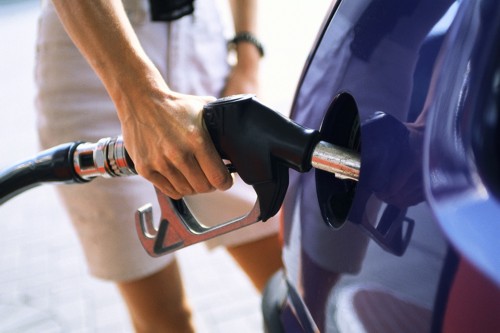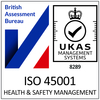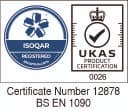How to Become More Fuel Efficient

Here at Able Canopies we are committed to helping and preserving the environment; we have achieved the internationally recognised ISO14001 accreditation for two years running due to our commitment to continually monitor and improve the impact our company has on the environment.
Throughout our application for and achievement of the ISO14001 registration we have learnt a lot of useful information about how to easily make a difference to our impact in the environment – and as well as sharing this information with our employees we’d also like to help our customers find ways to help the environment too. So we’ve started with one close to a lot of people’s hearts – fuel efficiency. With fuel prices continuing to rise these tips can not only help the environment but should also help save you some money too!
Ten top tips to help you become more fuel efficient:

- Try to avoid sudden accelerating and braking because this uses more fuel than if you maintain a steady speed. The best way is to accelerate slowly and smoothly, then get into high gear as quickly as possible. In city driving, nearly 50% of the energy needed to power your car goes to acceleration.
- Save fuel by sticking within the speed limit on the motorway. Driving at 85mph uses 25 per cent more fuel than staying at 70mph.
- Reduce drag on your vehicle by keeping windows closed, particularly on the motorway – it is more fuel-efficient to use air-conditioning. Also remove your roof rack when not in use, as it also increases drag and wastes fuel.
- Avoid idling your vehicle, in both summer and winter. Idling wastes fuel, gets you nowhere and produces unnecessary greenhouse gases. If you’re going to be stopped for more than 30 seconds, except in traffic, turn off the engine. In winter, don’t idle a cold engine for more than 30 seconds before driving away. (Older vehicles, however, may need more idling time when first started. In cold, winter conditions all vehicles may need more idling time to warm up and ensure the windshield is fully defogged. Be sure your vehicle is warmed enough to prevent stalling when you pull out.)
- Select the right gear. Change up through the gears and into top gear as soon as possible without accelerating harder than necessary. Driving in a gear lower than you need wastes fuel; so does letting the engine labour in top gear on hills and corners. Automatic transmissions will shift up more quickly and smoothly if you ease back slightly on the accelerator once the car gathers momentum. Generally speaking the most efficient time to change gear is when the engine is at 2500 revs.
- Use your air conditioning sparingly. Using a vehicle’s air conditioner on a hot summer day can increase fuel consumption as much as 10% in city driving. If it’s cool enough, use the flow-through ventilation on your car instead of the air conditioner. At low speeds, opening the window will also reduce fuel consumption by reducing A/C use. At higher speeds however, using the A/C may be more efficient than the wind resistance from open windows and sunroof.
- Park in shady areas when possible. Besides helping to keep your car cool, which reduces the need for air conditioning, parking in the shade also minimizes the loss of gas due to evaporation.
- Cars are not fuel-efficient on short journeys, so try to avoid driving if you are popping to the local shops. It also pays to plan longer journeys in advance because being stuck in traffic or getting lost burns extra fuel.
- To improve efficiency and reduce costs, try lift sharing. At www.liftshare.org , look for people in your area who use the same route. The fuel cost for the journey is split between all those in the car.
- Check your tyre pressure regularly. Underinflated tyres can increase fuel consumption by up to 3 per cent.
Able Canopies Ltd. design, manufacture and install commercial grade canopies, shade sails,
awnings and shelters across the UK. We specialise in servicing the education, leisure,
healthcare and retail sectors and have extensive experience working with
schools, councils, architects and contracting firms.
For more information on our products and services please contact us
Follow us on our social media accounts for the latest funding advice, new products & latest news:
Twitter | Facebook | Google + | Linked In
Categories
- Canopies for Architects & Contractors
- Canopies for Healthcare
- Canopies for Restaurants, Bars and Hotels
- Canopies for Retail & Commercial
- Canopies for Schools
- Canopies for Sports & Leisure
- Canopy Maintenance
- Case Studies
- Cool Links & Facts
- Cycle Parking Solutions
- Dates for Your Diary
- Eco-Friendly Holiday Crafts
- Employee Spotlight
- Environmental Tips
- Funding and Fundraising
- How to... Get the Most out of Your Canopy
- Latest News
- Latest Stories
- Lockdown Outdoor Learning & Play Ideas
- MD News
- Newsletters - Architects & Contractors
- Newsletters - Schools & EYFS
- Outdoor Learning
- Outdoor Play
- Planning Your Cycle Parking
- Product Focus
- Solar Carports
- Spring Fundraisers 2017
- Summer Shade
- The Good Canopy Guide
- Wall Mounted Canopies











